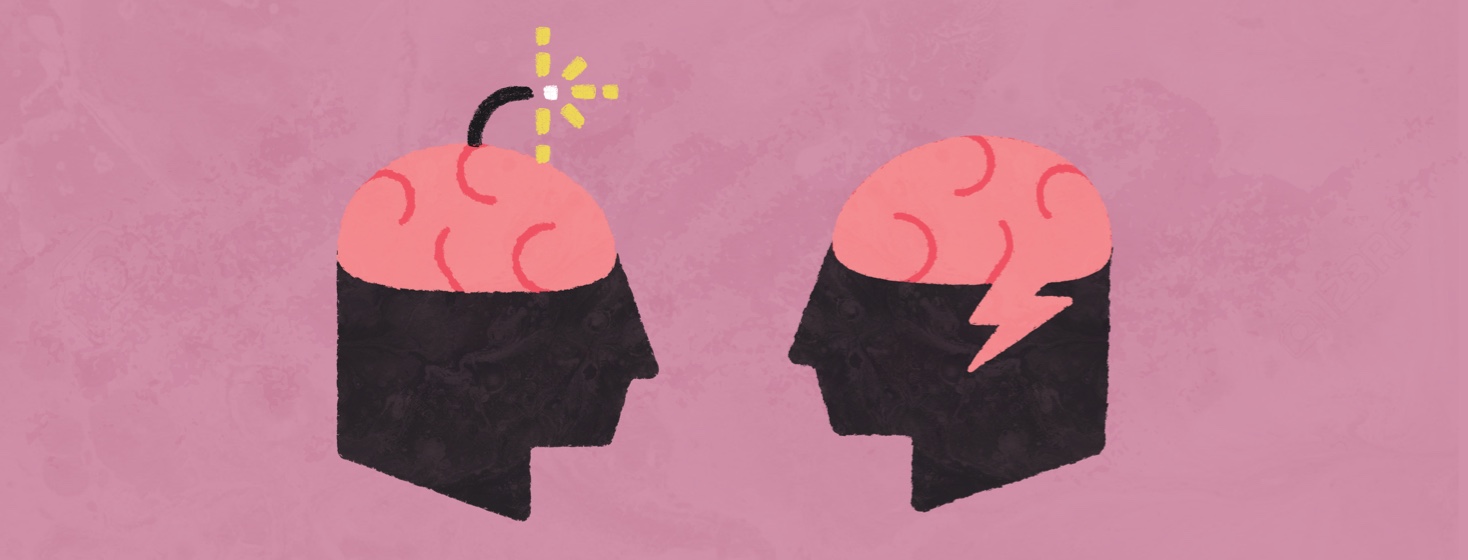"Cluster Migraine"
Readers often ask about something they call “cluster migraine”. It’s not an official diagnosis in the International Classification of Headache Disorders, so delving into the topic took some sleuthing.
5 questions about "cluster migraine"
I found the following five questions raised in relation to the phrase “cluster migraine”:
- Can a person have both cluster headache and migraine?
- Can a person with migraine have cluster headache symptoms without also having cluster headache?1
- Can a person with cluster headache have migraine symptoms without also having migraine?2
- Do migraine attacks cluster together in time?
- Is it possible to have migraine attacks that are as painful as cluster headaches?
How are migraine and cluster headache different?
“Yes” is the answer to the first three questions. Both migraine and cluster headache involve the same nerves. This doesn’t mean they are necessarily intertwined, but some symptoms overlap. Key differences are:
- Cluster attacks tend to last 15 minutes to three hours and can come many times in a day
- During a cluster attack, a person becomes restless and agitated (many pace during an attack)
- Cluster headaches usually come on suddenly and disappear rapidly
To learn more, check out this excellent article from Anna Williams explaining what the differences are. Anna has both migraine and cluster headache, so she's well-versed in both.
How do you know which one you have?
The only way to know if you have migraine, cluster headache, or both is to see a health care provider, ideally one who specializes in headache medicine. An accurate diagnosis is critical to getting the best treatment, no matter which headache disorder(s) you may have.
Can migraine attacks group together?
Yes, migraine attacks can group together in time. In fact, research is increasingly showing that migraine frequency tends to be cyclical for many patients. Someone can go six months without a migraine attack, then have five in one month, then have a break before another spate of attacks. This is different from cluster headache. It doesn’t mean a person has “cluster migraine” — they simply have migraine attacks that tend to group together in time.
Does the pain compare?
Pain is a subjective experience, so it’s impossible to say definitively whether a migraine attack can cause as much pain as a cluster headache. Everyone I’ve met who has both cluster headache and migraine says that the pain of a migraine attack is a breeze compared to that of a cluster headache. Headache specialists also say that the pain their cluster headache patients experience seems more severe than that of migraine. I cannot speak for anyone else, but I believe cluster headache is more painful than migraine based on what I’ve been told and read. And I’ve had some vicious migraine attacks.
Were you diagnosed with "cluster migraine?"
"Cluster migraine" is not a recognized diagnosis in the International Classification of Headache Disorders. If a doctor gives you this diagnosis, consider that their migraine knowledge may not be current. You might find more effective treatment with a different doctor.

Join the conversation